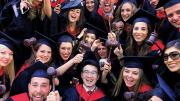Kenneth Kronenberg seeks the definitive source for “When fascism comes to America, it will be wrapped in the flag and carrying a cross,” attributed variously to Upton Sinclair, H.L. Mencken, and Huey Long, and to Sinclair Lewis’s It Can’t Happen Here. (On-line searches of two texts of the novel yielded nothing, he says).
Clifford Straehley requests the name of the putative author of the exhortation “Do good because good is good to do. Fear not the threat of Hell, nor be beguiled by the promise of Heaven.”
John Severson asks the source of “Strive not, thou earthen pot, to smash the wall.”
“insightful commentary on conversation” (January-February 2006). Judith Peritz offers a further example. Concluding chapter three of his book Prisoners of Hate: The Cognitive Basis of Anger, Hostility, and Violence (1999), Aaron T. Beck writes, “…in any interpersonal encounter there are at least six images involved: my image of me, my image of you, and my projected image (what I visualize as your picture of me), your image of me, and your projected social image (what you imagine is my picture of you), and your image of yourself. The interaction of these images is reflect ed in each individual’s behavior.”
Send inquiries and answers to “Chapter and Verse,” Harvard Magazine, 7 Ware Street, Cambridge 02138, or via e-mail to chapterandverse@harvardmag.com.





